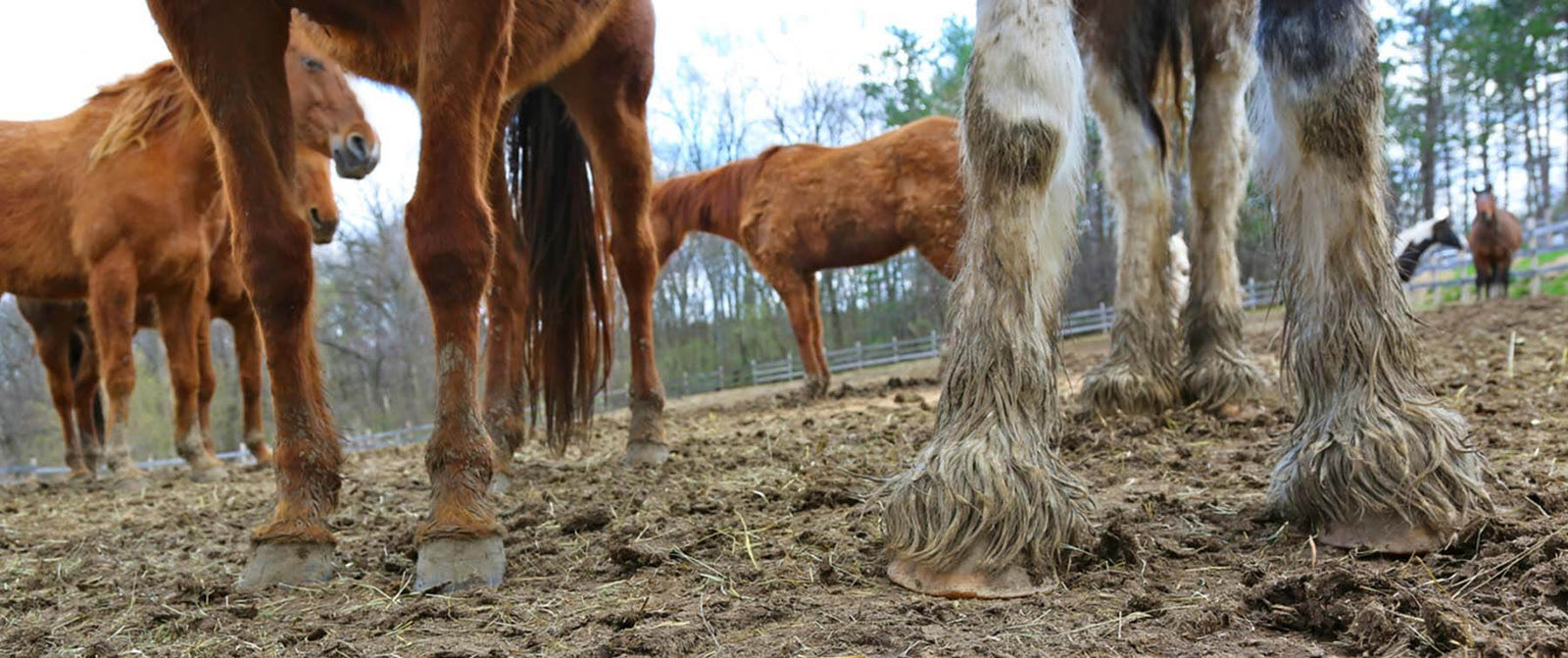FREE SHIPPING OVER £49 T&C'S APPLY
Mud Fever Season
January 16, 2019 2 min read 0 Comments

Mud fever is an infection that affects the lower legs of a horse. It can cause cracks on the skin, leaving it sore. Any hair in the affected area will be lost. It is very uncomfortable for your horse and it can easily be caused which is why prevention is very important. Read on for more help and advice.
When it's most likely to occur.
As the main cause of mud fever is mud, it is more likely for your horse to get this infection during the winter months when the field is wet, muddy, and cold. However, you should always be prepared for mud fever.

Why it happens.
It is caused by bacteria or fungal organisms; these organisms thrive in damp conditions. If your horse is spending large amounts of time in damp, deep mud/water then they are going to become vulnerable to mud fever. Other than mud, excessive sweating, long feathers holding moisture against the skin and wet bedding can also be reasons for mud fever.
Does my horse have mud fever?
It is quite easy to spot if your horse is infected. They may have open sores, hair loss, crusty scabs, swelling and there may be a pain when touched. Other symptoms include lethargy (loss of energy) and loss of appetite.
If your horse does have mud fever your first step is to keep the area clean and dry (this might mean the horse needs to be stabled until recovered) The scabs should be removed, this can be very painful. Some scabs may need soaking to soften them, before peeling them away.
When the area is scab free, the wounds need washing with a medicated shampoo or scrub. In the store, we have the Muddy Buddy Range which has treatment and prevention for mud fever. Make sure you rinse well.
The area must be dried thoroughly, using clean towels.
These steps may need to be repeated and it may take a few weeks for it to completely clear up. If there is no improvement, then contact your vet as in some cases mud fever may require antibiotics.

How do you prevent mud fever?
Prevention is the most important part as it saves your horse from being unnecessarily uncomfortable. Never share grooming kits or boots etc with a horse that has the infection.
Lincoln Muddy Buddy has many different creams and powder to help prevent mud fever from occurring if the horse must stay turned out. However, keeping your horse inside with clean, dry bedding will prevent mud fever from occurring.
Avoid washing their legs as much as possible during the cold, winter months.




Why not read the winter feeding guide too for help and advice on what to feed your horse to keep its condition throughout the cold weather.
https://petnpony.co.uk/blogs/news/winter-feeding-guide-for-horse-owners
Also in PetnPony Blog

Chronic Kidney Disease in Cats - Royal Canin
February 24, 2025 3 min read 0 Comments
Cats - like dogs and humans - have two kidneys situated in the abdomen close to the spine and last rib. They are vital organs, continually filtering toxins and waste materials from the blood and producing urine to enable those toxins to be excreted from the body.

Fuel Their Joy, Feed Them Natural: Discover Premium Dog Foods at PetnPony
August 08, 2024 4 min read 0 Comments

20% Off Burns Original Recipes at PetnPony this August! Natural, Hypoallergenic, and Delicious!
August 05, 2024 3 min read 0 Comments

